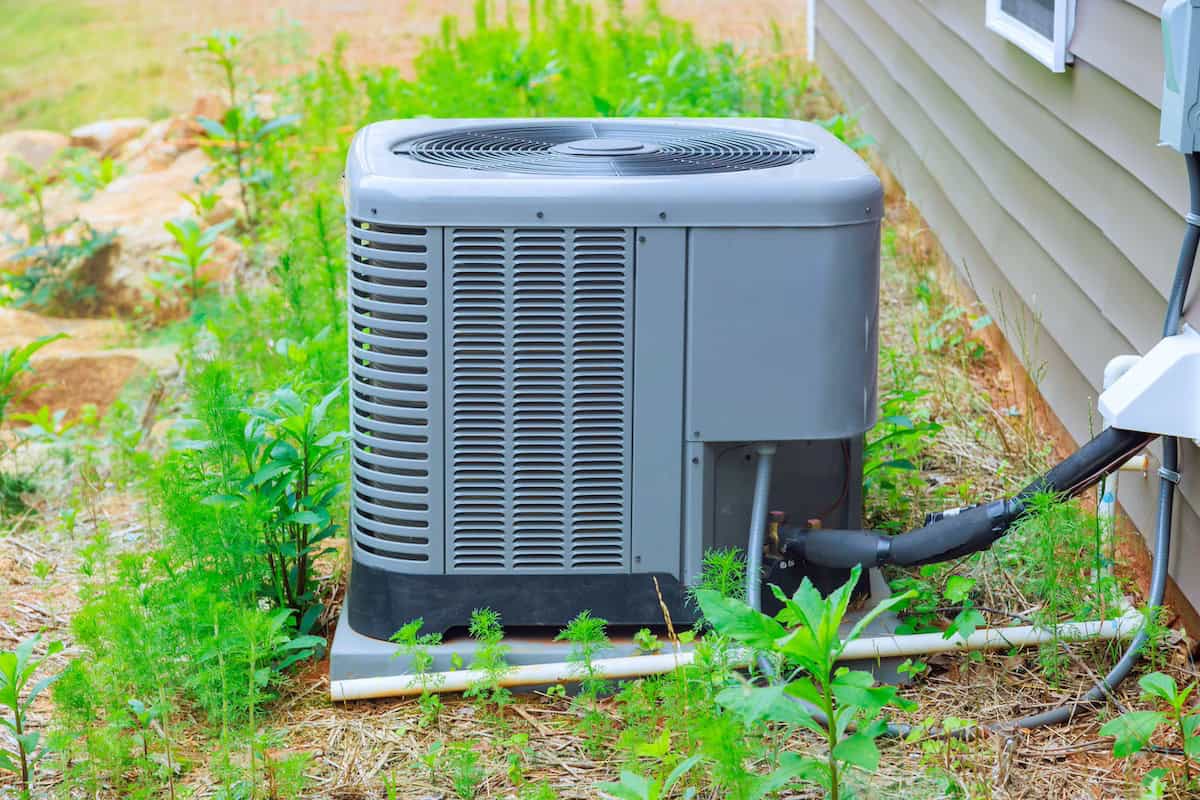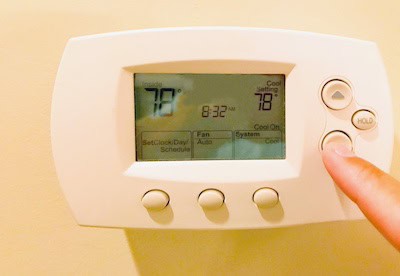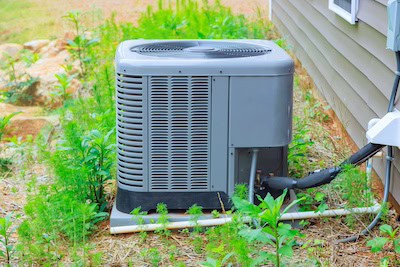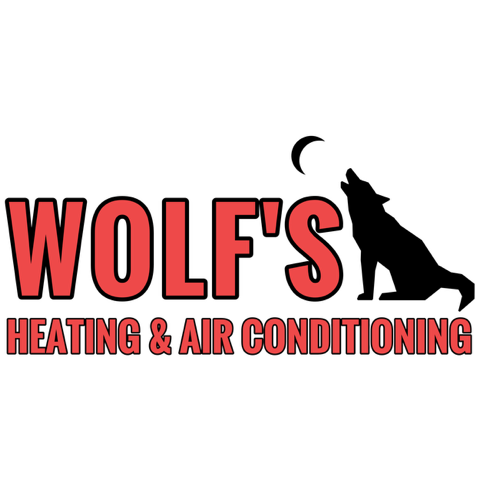
06 Nov Top Reasons Your HVAC System Isn’t Cooling or Heating Properly
Common HVAC System Issues
In homes and workplaces, HVAC (Heating, Ventilation, and Air Conditioning) systems are critical for maintaining comfortable indoor temperatures year-round. However, HVAC systems can experience issues that impact their ability to cool or heat efficiently. Below, we explore common reasons your HVAC system may struggle to meet temperature demands and how to address these issues for improved performance.
1. Thermostat Issues
One of the first places to check when your HVAC system isn’t performing correctly is the thermostat. If it’s set improperly, it could result in inadequate heating or cooling. Issues with thermostat settings, dead batteries, or improper calibration can all prevent the HVAC system from functioning effectively.

Thermostat Wiring Problems
Faulty or outdated wiring can also cause significant thermostat issues. When wiring is compromised, it can interrupt the signal from the thermostat to the HVAC system, leading to temperature inconsistencies. Replacing or upgrading wiring is often necessary to restore proper function.
2. Dirty or Clogged Air Filters
Clogged filters restrict airflow, making it difficult for your HVAC system to heat or cool the air effectively. A dirty filter can cause the system to work harder, reducing its efficiency and potentially damaging internal components over time.
Filter Replacement Frequency
To maintain optimal airflow, replace or clean air filters every 1-3 months, depending on usage and air quality. Regular maintenance of filters helps ensure efficient airflow, improving system performance and energy efficiency.
3. Refrigerant Leaks
Refrigerant is essential for cooling; when levels are low due to leaks, your HVAC system struggles to cool properly. Common signs of refrigerant leaks include insufficient cooling, longer cooling cycles, and hissing sounds near refrigerant lines.
Environmental and System Impact of Low Refrigerant
Low refrigerant can put additional strain on the compressor and lead to higher energy bills. It can also negatively impact the environment if not addressed quickly. Professional repair and refrigerant recharge are typically needed for these issues.
4. Blocked Vents and Registers
When vents are blocked by furniture or objects, airflow is restricted, preventing efficient heating or cooling. This causes the HVAC system to overwork, which can lead to increased wear and tear on the system.
Clearing Blockages
Check all vents and registers and ensure they’re free from obstructions. If necessary, rearrange furniture to allow for adequate airflow throughout each room.
5. Frozen Evaporator Coils
The evaporator coils in an HVAC system are responsible for absorbing heat. If they freeze, it indicates a problem with airflow or refrigerant levels, preventing the system from cooling efficiently.
Effects of Frozen Coils
Frozen coils not only reduce cooling power but can also cause long-term damage to the system. Proper diagnosis and repair of airflow issues or refrigerant leaks are essential to prevent this problem.
6. Electrical Problems
Electrical issues, such as blown fuses, tripped breakers, or faulty wiring, can cause your HVAC system to stop working. These issues often stem from aging equipment or electrical surges that affect the power supply.
Ensuring Proper Electrical Connections
A licensed technician can diagnose and repair electrical problems safely, ensuring your HVAC system operates without interruptions. Regular inspections can help identify potential electrical issues before they become problematic.
7. Dirty Condenser Coils
Condenser coils release the heat absorbed inside the home to the outside. When these coils are covered in dirt or debris, they struggle to release heat, leading to reduced cooling efficiency.
Cleaning and Maintenance
Regularly cleaning condenser coils, typically located outside, can improve system performance. Ensure the surrounding area is free from leaves, grass clippings, or other obstructions to maintain proper airflow.

8. Fan Issues
Both the blower fan (indoor) and condenser fan (outdoor) play essential roles in HVAC function. If either of these fans malfunctions, it can lead to poor airflow and insufficient heating or cooling.
Signs of Fan Malfunctions
Loud noises, inconsistent airflow, and overheating are all indicators of fan issues. Replacing or repairing fan motors and blades can restore proper airflow and prevent further system issues.
9. Ductwork Leaks
Leaks in ductwork allow heated or cooled air to escape, making it difficult for the HVAC system to reach the desired temperature. Over time, leaky ducts reduce system efficiency and increase energy bills.
Locating and Sealing Duct Leaks
HVAC professionals use specialized tools to detect and seal duct leaks, helping to restore efficiency and improve indoor comfort. Regular inspections can help prevent leaks from developing.
10. Age of the HVAC System
Older HVAC systems lose efficiency over time, leading to more frequent issues and higher energy costs. Generally, HVAC systems have a lifespan of 15-20 years, depending on maintenance and usage.
When to Consider Replacement
If your system is over 15 years old and experiencing frequent breakdowns, it may be time to consider an upgrade. Modern HVAC systems are more energy-efficient and can save money in the long run.
11. Incorrect HVAC Sizing
A system that is too large or too small for your space will struggle to maintain consistent temperatures. Oversized systems tend to cycle on and off too quickly, while undersized systems may run continuously.
Identifying Incorrect Sizing
Signs of incorrect sizing include frequent cycling, uneven temperatures, and high energy bills. Consulting with an HVAC specialist can help determine the right system size for your space.
12. Poor Maintenance
Lack of regular maintenance can lead to clogged filters, dirty coils, and worn components, all of which reduce HVAC efficiency. Annual maintenance can extend the life of your system and improve its performance.
Recommended Maintenance Schedule
A bi-annual maintenance schedule that includes filter changes, coil cleaning, and electrical inspections can prevent costly repairs and optimize system performance.
13. Blower Issues
The blower is responsible for moving air throughout your home. If the blower motor is faulty, airflow is restricted, leading to inadequate heating or cooling.
Recognizing Blower Motor Problems
Signs of blower issues include reduced airflow, odd noises, and overheating. Timely repair or replacement of blower components can restore airflow and system efficiency.
14. Drainage Problems
HVAC systems remove moisture from the air, which is expelled through a drainage line. If this line is clogged, water can back up, causing the system to shut down or malfunction.
Effects of Poor Drainage
Clogged drain lines can lead to water damage and reduced cooling efficiency. Regularly clearing the drainage line can prevent these issues and maintain system functionality.
15. External Temperature Extremes
Extreme outdoor temperatures can strain HVAC systems, making it challenging to reach desired indoor temperatures. In very hot or cold weather, even well-maintained systems may experience reduced efficiency.
Tips for Efficient Operation During Extreme Weather
To maximize HVAC performance during extreme temperatures, keep blinds closed, use ceiling fans, and set the thermostat to a moderate temperature. Proper insulation and sealing around windows and doors can also help.
Conclusion
Understanding the top reasons your HVAC system may not be cooling or heating effectively is crucial for maintaining indoor comfort and system longevity. Regular maintenance, timely repairs, and professional inspections can prevent most common issues, ensuring efficient operation throughout the year. For persistent issues, consulting with an HVAC professional can provide solutions tailored to your system and specific needs.
FAQs
1. Why does my HVAC system keep running but isn’t cooling?
This could be due to low refrigerant levels, clogged air filters, or a malfunctioning compressor. Each of these issues can reduce cooling efficiency, requiring professional inspection.
2. How often should I replace my air filter?
It’s recommended to replace or clean air filters every 1-3 months, depending on usage and air quality conditions.
3. What are the signs of refrigerant leaks?
Common signs include insufficient cooling, hissing sounds, and frozen evaporator coils. Refrigerant leaks require professional repair and refrigerant recharge.
4. Why does my HVAC system blow hot air instead of cold?
This could be due to a malfunctioning thermostat, refrigerant leak, or electrical issue. These issues prevent the system from cooling effectively.
5. How do I know if my HVAC system is the right size?
Signs of improper sizing include frequent cycling, uneven temperatures, and high energy bills. A professional assessment can determine if your system is appropriately sized.
6. Can extreme temperatures affect my HVAC system’s performance?
Yes, extreme heat or cold can strain the system, reducing its ability to maintain consistent indoor temperatures.


No Comments